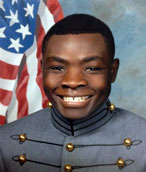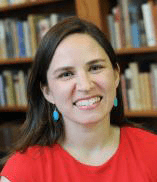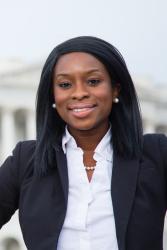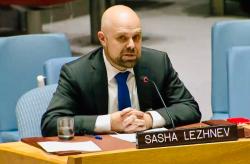2024
On January 9, the National Independent Electoral Commission (CENI) of the Democratic Republic of the Congo (DRC) announced the results of the country’s long-awaited December 30 national election. To the surprise of virtually all observers, opposition figure Felix Tshisekedi was declared winner with 36.6 percent of the votes, with Emmanuel Ramazani Shadary—the candidate of long-time President Joseph Kabila’s Common Front for Congo (FCC)—coming in third place with 23.8 percent. (In second place was Martin Fayulu, with 34.8 percent.) However, despite losing the presidency, the FCC won a supermajority in both the parliament and the senate, leading many to speculate that the surprising election results were the product of a deal between Kabila and the opposition. With so many questions about the legitimacy of the DRC’s elections—including strong pushback from the African Union—the DRC’s future remains more uncertain than ever.
On February 1, Michael O’Hanlon—senior fellow and director of the Africa Security Initiative at Brookings— led a panel discussion with experts on the results of the DRC’s elections, and the country’s uncertain future ahead.
Questions from the audience followed their conversation.
US and international policy options towards DRC
Agenda
-
February 1
-
Congolese perspectives on the December election
10:00 am - 11:00 am
Panelist
 Michael E. O’Hanlon Director of Research - Foreign Policy, Director - Strobe Talbott Center for Security, Strategy, and Technology, Co-Director - Africa Security Initiative, Senior Fellow - Foreign Policy, Strobe Talbott Center for Security, Strategy, and Technology, Philip H. Knight Chair in Defense and Strategy @MichaelEOHanlon
Michael E. O’Hanlon Director of Research - Foreign Policy, Director - Strobe Talbott Center for Security, Strategy, and Technology, Co-Director - Africa Security Initiative, Senior Fellow - Foreign Policy, Strobe Talbott Center for Security, Strategy, and Technology, Philip H. Knight Chair in Defense and Strategy @MichaelEOHanlon Tom Perriello Former U.S. Special Envoy for the African Great Lakes and Congo-Kinshasa - U.S. Department of State @tomperriello
Tom Perriello Former U.S. Special Envoy for the African Great Lakes and Congo-Kinshasa - U.S. Department of State @tomperriello Mulala Joseph Nguramo Private Consultant, Former Research Assistant - The Brookings Institution
Mulala Joseph Nguramo Private Consultant, Former Research Assistant - The Brookings Institution -
US and international policy options towards DRC
11:00 am - 12:00 pm
Panelist
 Michael E. O’Hanlon Director of Research - Foreign Policy, Director - Strobe Talbott Center for Security, Strategy, and Technology, Co-Director - Africa Security Initiative, Senior Fellow - Foreign Policy, Strobe Talbott Center for Security, Strategy, and Technology, Philip H. Knight Chair in Defense and Strategy @MichaelEOHanlon
Michael E. O’Hanlon Director of Research - Foreign Policy, Director - Strobe Talbott Center for Security, Strategy, and Technology, Co-Director - Africa Security Initiative, Senior Fellow - Foreign Policy, Strobe Talbott Center for Security, Strategy, and Technology, Philip H. Knight Chair in Defense and Strategy @MichaelEOHanlon Kristin McKie Assistant Professor of Government & African Studies - St. Lawrence University
Kristin McKie Assistant Professor of Government & African Studies - St. Lawrence University
-



